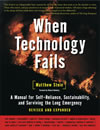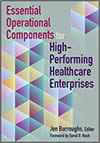All Articles
Alcohol, Tobacco & Other Drugs
Forgery & Fraud
Anger Management & Related Issues
Hazardous Materials
Animals
Healthcare
Appraisal & Valuation
Healthcare Facilities - Hospitals
Archaeology - Archeology
HVAC - Heating, Ventilation, Air Conditioning
Attorney Fees
Intellectual Property
Banking
Land Mapping - Surveying - Zoning
Biokinetics
Life Expectancy - Life Care Planning
Blockchain Information
Machinery
Business Consulting
Marine - Maritime
Child Welfare
Mediation
Child Witch Phenomenon
Medical - Medicine
Computers
Medical Records Review
Criminology
Mining
Dental - Dentistry
Obstetrics - Gynecology (OBGYN)
Electrical - Electrocution
Oil & Gas
Employment
Pharmacy & Pharmacology
Engineering
Police Practices & Procedures
Enterprise Resource Planning (ERP)
Pools and Spas (Recreational)
Ethics / Ethical Duties
Public Speaking
Exercise & Fitness
Real Estate
Expert Witnessing
Recreation & Sports
Eyewitness Testimony
Sexual Abuse - Molestation - Harassment
Fires & Explosions
Transportation
Food & Beverage
Yoga
More...

BANKING-PAGE ARTICLES MAIN PAGE
. Contact Us if you are interested in having your work published on our website and linked to your Profile(s).
All Articles
Accident Prevention & Safety
Land Mapping - Surveying - Zoning
Animals
Land Use
Architecture
Law Enforcement
Attorney Fees
Laws & Procedures
Bacteria - Fungus - Mold Investigation
Legal Issues
Banking
Life Expectancy - Life Care Planning
Biokinetics
Logistics - Reverse Logistics
Blockchain Information
Machinery
Branding - Brand Management
Marine - Maritime
Business Management
Mediation
Crisis Management
Medical Malpractice
Dental - Dentistry
Nonprofit Organizations
Documentation Examination & Analysis
Nursing
Electrical - Electrocution
Obstetrics - Gynecology (OBGYN)
Engineering
Patents
Exercise & Fitness
Pharmaceuticals
Failure Analysis
Police Practices & Procedures
Family Issues
Psychiatry
Foreign Affairs - Geopolitics
Public Speaking
Forensic Psychiatry
Search Engine Optimization (SEO)
Healthcare
Spirituality
Hotels & Hospitality
Taxation
Human Resources
Terrorism - Homeland Security
HVAC - Heating, Ventilation, Air Conditioning
Transportation
Intellectual Property
Warnings & Labels
More...
Featured Articles
There are no active articles here at this time. Please use the search bar, try another category, or contact us if you would like to contribute an article.
This Article is unavailable. Contact Us
Search articles by title, description, author etc.
Sort Featured Articles
Featured resources
When Technology Fails: A Manual for...
by Matthew Stein, PE
The Coin Collector's Survival Manual,...
by Scott Travers
Essential Operational Components for...
by Jon Burroughs, MD, FACHE
Follow us










